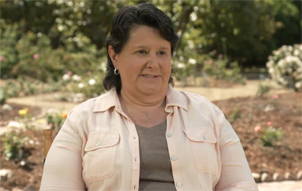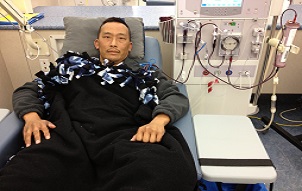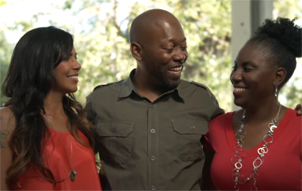SACRAMENTO, Calif., May 14, 2013
Free Service Informs Californians About
Altruistic Living Kidney Donation
Seeks to help thousands in need of lifesaving kidney transplants
Contact: Brianne Mundy, Program Manager, 619.563.5137
Living Donation California launched today as a first-of-its-kind, state-authorized information and referral service to inspire and inform people to be altruistic living kidney donors. Through its website, the free service provides information about living kidney donation and refers potentially eligible individuals for evaluation at a transplant center.
“There is a national shortage of kidneys available for transplant, and the need is especially acute in the State of California. By encouraging people to be altruistic kidney donors, Living Donation California gives hope to the thousands of transplant-eligible Californians who spend years on dialysis – years they could be spending more time with family, working and living healthy, active lives,” said Lisa Stocks, Board President of Donate Life California, administrators of the state’s organ and tissue donor registry who together with fifteen kidney transplant programs developed the Living Donation California initiative.
In California, kidney transplant candidates wait up to ten years, and for many patients twice as long as the national average, for a kidney transplant from a deceased donor. Circumstances allowing for organ recovery at the time of death are a rare (less than one percent) occurrence, so the state’s transplant community is focused on increasing living donation to help the large and growing number of Californians in need of kidney transplants.
The vast majority of living kidney donors are family or close friends of their recipients. A small but growing percentage are altruistic donors who offer the gift of a kidney without expectation of receiving anything in return. Federal law prohibits buying and selling organs for transplant, although in some cases living organ donors may be reimbursed for travel and other expenses incurred during the donation process. However, altruistic donors commonly feel greatly empowered by their choice to donate a kidney.
On April 2, 2013, Kelly Wright of Newport Beach donated a kidney to a Boston man she met on Facebook in January. She says she has no regrets. “I will never have a bigger accomplishment in my life than having one of my kidneys working inside of another human who may have died without it. Living donation is a blessing for both donor and recipient! I am happy to share my story – there may be others willing to save a life!”
Living kidney donation is possible because most people are born with two kidneys. In the case of a person with two healthy kidneys, one can be transplanted into someone whose kidneys are failing. After the transplant, both the donor’s remaining kidney and the transplanted one will typically grow in size to perform at a higher level of function so both the donor and recipient can still live healthy and active lives.
Tad Suwa, a Sacramento firefighter, is one of the thousands of Californians hoping to be freed from dialysis by receiving a kidney transplant so he can serve his community and enjoy time with his girlfriend and their children. “I just want to get back to my job and my family needs me to work and play with them again.”
“Living Donation California will be a valuable resource to invite people to explore living kidney donation,” said Dr. Jeffrey L. Veale, kidney transplant surgeon and Director of the Kidney Transplant Exchange Program at Ronald Reagan UCLA Medical Center. “Many people do not know that as a living kidney donor they can help not only one person, but spark a chain of transplants that could help 30 people or more receive lifesaving kidney transplants.” The story of one such series of transplants is illustrated in a mini web documentary “The Chain,” which features a series of transplants initiated by an altruistic donor whose kidney was transplanted by Dr. Veale. “The Chain” will premiere on May 14 on Participant Media’s TakePart YouTube channel.
The Living Donation California website comprehensively explains the short-term and long-term risks associated with living kidney donation, which are considered to be low overall and comparable to other common surgeries. In fact, 95 percent of living kidney donors report minor to no complications. Living Donation California urges anyone considering living kidney donation to weigh the benefits and the risks and thoroughly discuss the donation process with the medical personnel at the transplant center to which they are referred.
By the numbers:
- More than 17,000 Californians are on the kidney transplant waiting list.
- 2,073 Californians received kidney transplants in 2012.
- 1,441 were from deceased donors
- 631 were from living donors
- 756 people died in California in 2012 waiting for a kidney transplant.
(Source: Organ Procurement and Transplant Network, U.S. Department of Health & Human Services)
History
In 2009, during his battle with pancreatic cancer, Apple founder Steve Jobs received a liver transplant. But, during that process he grew frustrated over the shortage of organs in the U.S. In cooperation with then-Governor Arnold Schwarzenegger and Donate Life California, The Altruistic Living Donor Registry Act of 2010 (SB 1395) was signed into law, authorizing the state’s organ procurement organizations to establish a service designed to “promote and assist live kidney donations.” Living Donation California is that service.
Living Donation California is a free information and referral service that encourages California residents to be altruistic kidney donors, provides accurate information about living donation, and refers potentially eligible individuals for evaluation at a transplant center.
Living Donation California is administered by Donate Life California, which manages the state-authorized organ and tissue deceased donor registry. Donate Life California’s Board of Directors is composed of eight representatives of the state’s four non-profit, federally designated organ procurement organizations (OPOs): OneLegacy, Lifesharing, California Transplant Donor Network and Sierra Donor Services. In addition, Living Donation California is supported by a Board of Advisors including participating California kidney transplant programs.
Buy levitra ask the friend or the girlfriend to test our production directly on a place. Everything depends on that who is pleasant to you. With the girl it is simpler. Her ask to become about you and to sit down on this chair.





